SMART, SUSTAINABLE
AND RESILIENT
AEROSPACE
In accepting its substantial responsibilities to combat climate change, the aerospace industry must adopt novel solutions to meet its Net Zero 2050 sustainability goal. Concordia has assembled researchers from across disciplines to meet these challenges and disrupt the sector as a whole.
We're building an environment
where aerospace research can really take off.

Promoting aerospace through a cross-faculty platform
The Concordia Institute of Aerospace Design and Innovation (CIADI) is a coordinated umbrella platform that promotes and supports excellence in aerospace research and education at Concordia. First established in 2001, CIADI supports education and experiential learning initiatives catered to the aerospace sector.
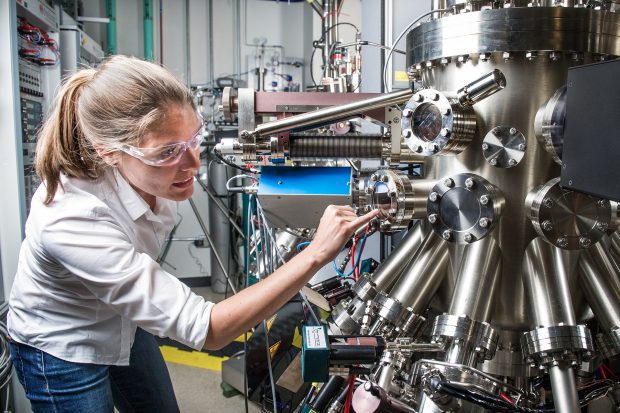
Training tomorrow's leading engineers
Concordia's aerospace degree programs at the Gina Cody School of Engineering and Computer Science provide training with industry partners at the graduate and undergraduate levels. Students are offered hands-on and multi-disciplinary opportunities to help them develop successful careers in the aerospace industry. In addition, various entry scholarships are available to prospective students. This includes opportunities for traditionally underserved groups in the sector including women, Indigenous and Black applicants.
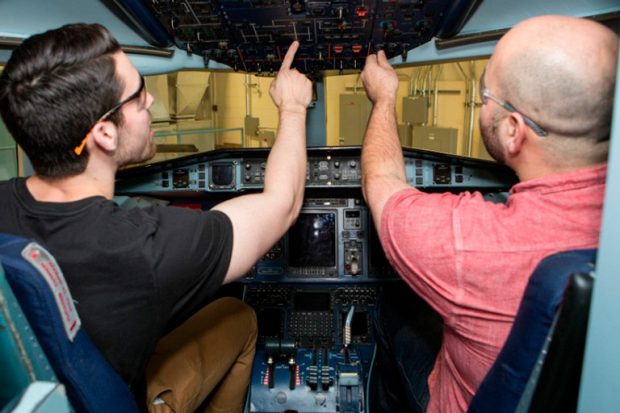
Taking flight in Next-Gen spaces
From materials thermodynamics and robotics, to flight control and simulation, Concordia's aerospace facilities provide state-of-the art technology where researchers and students can advance their next-generation projects. Be it electric-hybrid aircraft innovation or liquid powered rocket development, the university's aerospace activities extend from earth to space.
We're tackling our objectives through
four interrelated research themes:
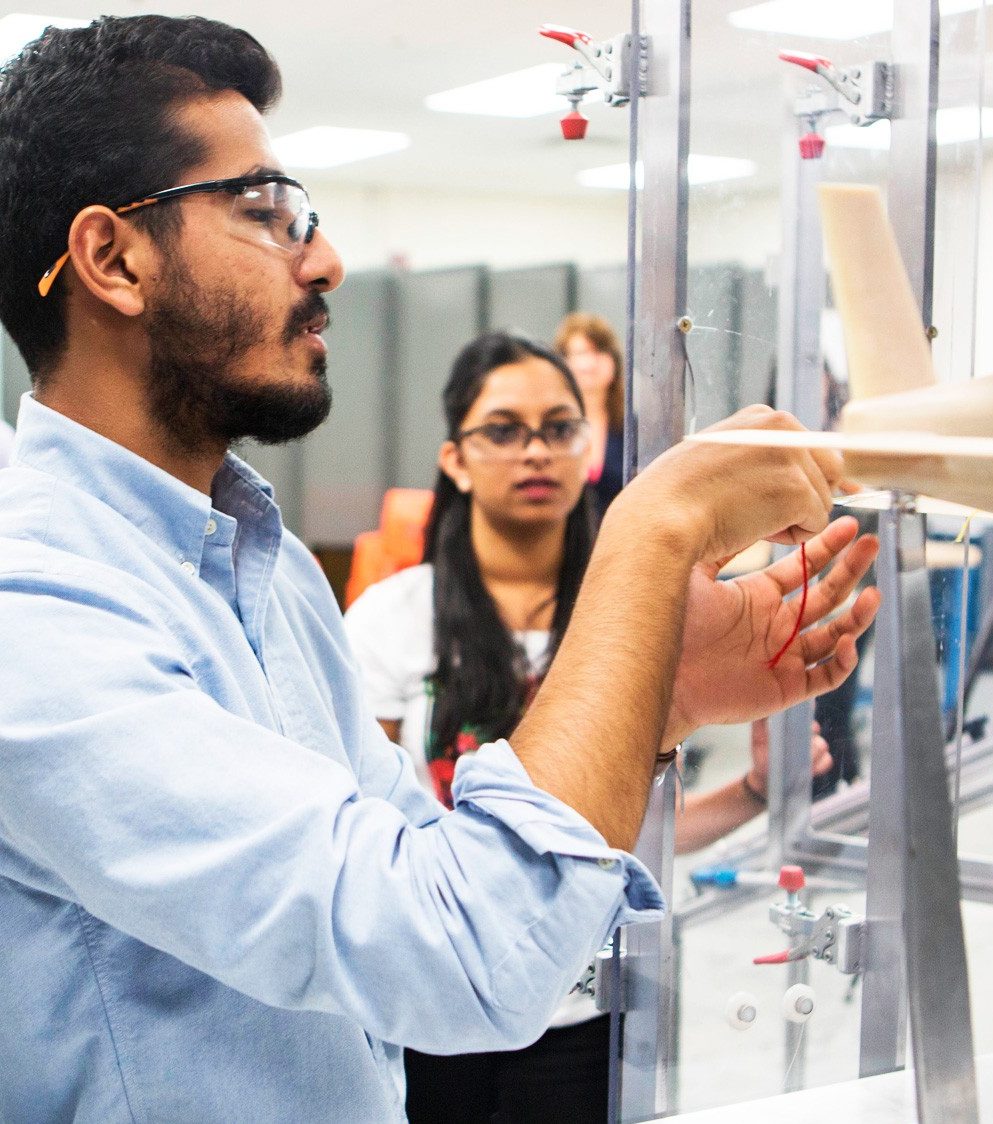
Integrating the design of sustainable aerospace systems
What is the future of aerospace vehicles? This research theme addresses the question by focussing on the conceptual design and development of an integration and analysis framework for the various methodologies and technologies to be investigated in the other research streams below. At the system level, structures, propulsion and aerothermodynamics are highly interrelated. Proper planning of this integration is crucial for all vehicle types and, in particular, for cutting-edge aircraft and spacecraft that more readily integrate novel technologies and materials.
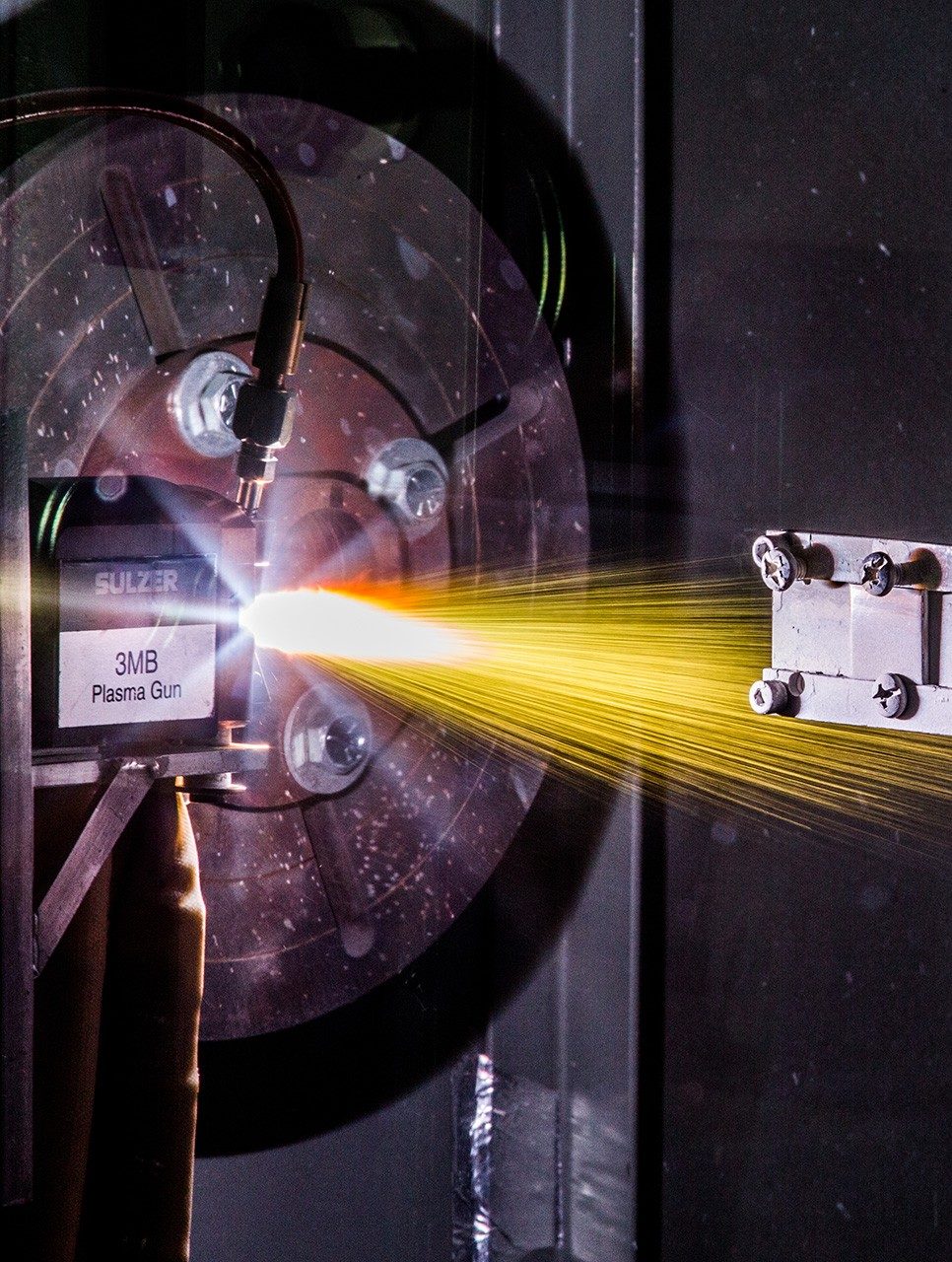
Enabling technologies, materials, processes and integration
Underpinning an integrated approach to aerospace design is fundamental knowledge of the subsystems and components relevant to future air and space vehicles. Breakthrough enabling technologies span several fields all with the goal of higher efficiency: fundamental material studies to reduce weight and energy consumption; SAF such as biofuels or synthetics fuels to replace carbon-emitting fuels; novel gel propellants for greener access to space; next-generation combustionbased propulsion systems to directly increase thermodynamic emission efficiency; fuel cells, battery and turbo-electric propulsion technologies.
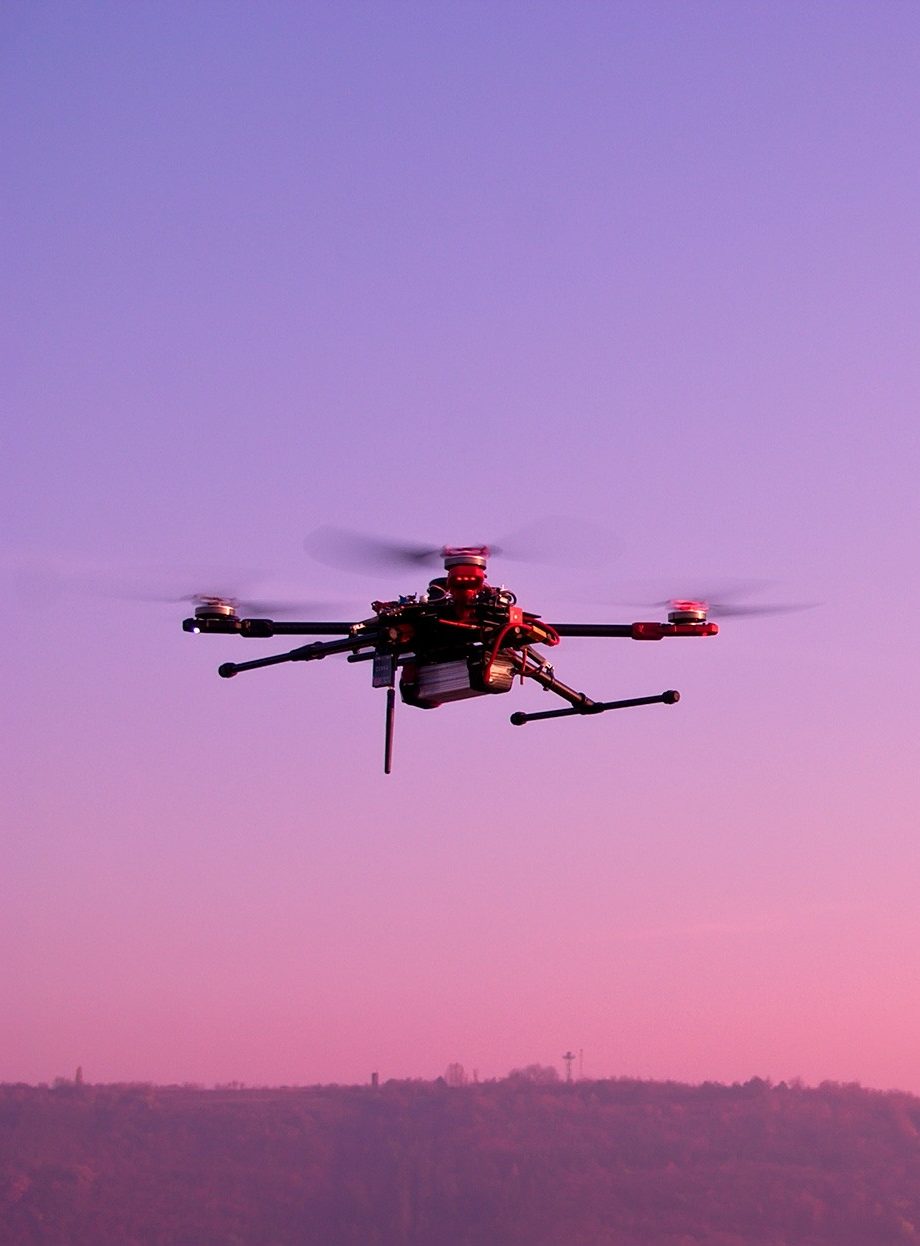
Building sustainable aerospace mobility planning, strategies and infrastructures
Our efforts will analyze sustainable aerospace mobility planning and strategies in addition to the social acceptability of these plans. A primary goal of these initiatives is to improve the autonomy, safety, capacity, cost-efficiency and de-carbonization performance of air traffic and flight management systems. Infrastructure (airports, spaceports, remote area access) and sustainable supply chains will also be incorporated into our investigations.

Employing an integrated Life-Cycle Assessment
Life cycle modeling techniques include life cycle cost analysis (LCCA), environmental life cycle assessment (LCA), and social life cycle assessment (SLCA). Each of these approaches have been used to assess individual aspects of air and space travel. Our efforts will seek an integrated approach that considers novel technologies and practices as part of an air or space mobility system. By proceeding with a holistic framework, we hope to encompass the complete life cycle of aerospace systems, the relationship between these systems and the broader air or space mobility ecosystem.
Through interdisciplinary collaboration, industry-leading learning opportunities, and state-of-the-art facilities, Concordia is ushering in a new era of aerospace research.
Next-Gen Innovation Now